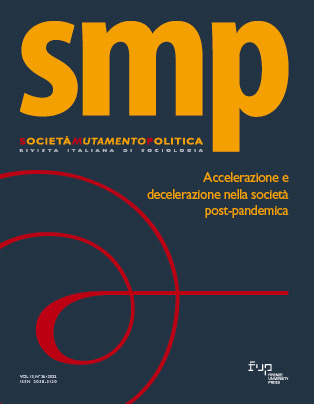Published 2023-03-24
Keywords
- acceleration,
- pandemic vaccines,
- foresight,
- Governance of science and technology,
- democracy
How to Cite
Copyright (c) 2023 Silvia Caianiello

This work is licensed under a Creative Commons Attribution 4.0 International License.
Abstract
The critical theory of acceleration provides a general framework for addressing the governance of technoscience in democratic societies in terms of “politics of time”, and to compare the different theoretical approaches aimed at steering their nonlinear dynamic towards socially and ethically desirable outcomes. To this aim, I will first introduce to the semantic ambiguity of the notion of governance, born as neoliberal response to the acceleration and increased complexity of globalized society (governance 1.0) and lately largely reframed as democratic and participatory governance (governance 2.0). I will then present a case of governance of technoscientific innovation in conditions of extreme urgency, the accelerated development of pandemic vaccines, as an example of the ambiguity between the two meanings. Then I will focus on the problem of the urgency of decision under the current paradigm of 2.0 governance of technoscientific innovation, which, even in non-emergency conditions, is affected by the temporal paradox highlighted by the Collingridge dilemma, in order to examine the different coping strategies proposed in the recent literature, spanning from anticipatory to adaptive approaches.

